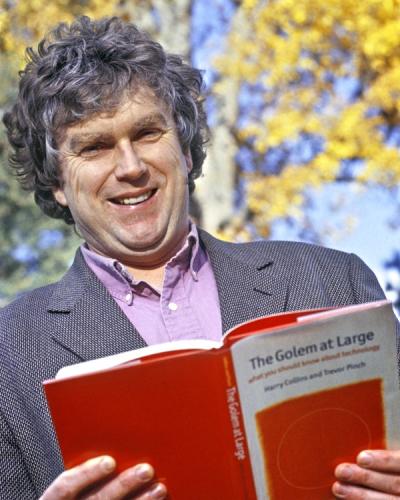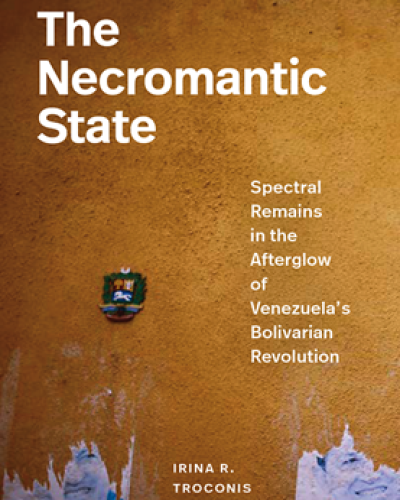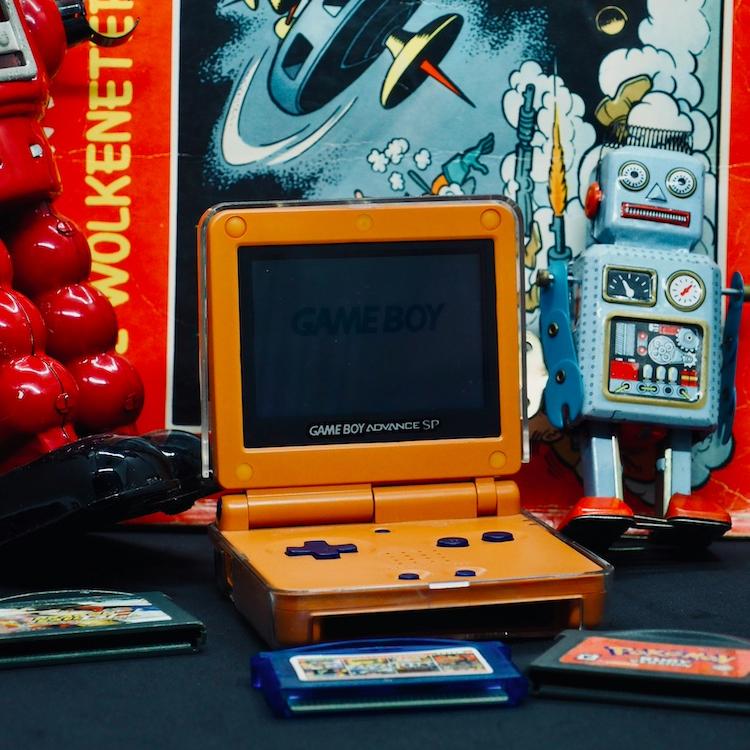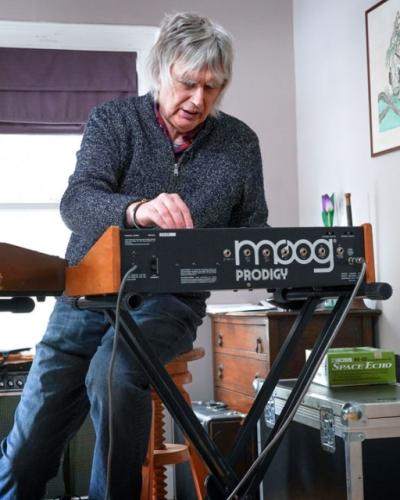Trevor Pinch, Distinguished Professor of Arts and Sciences in Science and Technology Studies in the College of Arts and Sciences, who helped found multiple areas of study related to science, technology, and sound, died Dec. 16 after living with cancer for more than four years. He was 69.
“Trevor was one of the brightest lights in science and technology studies, a field he helped to create. And he was at the center of our department for all the years I’ve been here. He was also one of the warmest, most generous scholars I know. I don’t know what we will do without him,” said Suman Seth, professor and chair of science and technology studies (STS), in an email to the department.
A versatile scholar, Pinch always seemed most comfortable on the cutting edge. His research helped found three areas of study: science and technology studies, the Social Construction of Technology (SCOT) and sound studies. He helped found the Department of Science and Technology Studies at Cornell, the first such department in the Ivy League.
When Pinch taught a sophomore writing seminar on sound studies in 2004, the field barely existed. A decade later, he called it “one of the most exciting new interdisciplinary fields in the academy,” as demonstrated by the publication of his co-edited “The Oxford Handbook of Sound Studies.”
Pinch’s reflections on these fields and his memories of their evolution were collected in a series of interviews by the Italian scholar Simone Tosoni, and published in 2016 as “Entanglements: Conversations on the Human Traces of Science, Technology, and Sound.”
“Though Trevor was a superstar, he was also modest and gentle,” said Bruce Lewenstein, professor of STS. “In person, he asked questions more than he made arguments. His interests ranged widely, and he could engage anyone in conversation. He loved collaboration, and welcomed visitors. Our department drew on him for intellectual stimulation and we’ll miss him.”
The STS subfield of SCOT, an entirely new approach to understanding technology, was born from Pinch’s most highly cited paper, “The Social Construction of Facts and Artefacts: Or How the Sociology of Science and the Sociology of Technology Might Benefit Each Other,” co-authored with Wiebe E. Bijker. The paper led to a book co-edited by Pinch, “The Social Construction of Technological Systems: New Directions in the Sociology and History of Technology,” which is now in the MIT Press Museum.
“Most approaches in the sociology of technology at the time looked at the impact of technology on society. SCOT looks the other way: how can society impact technology? How do assumptions about society get embedded within technology?” Pinch told the Cornell Chronicle in 2016.
Pinch’s wide-ranging interests also included markets and the economy, with specific attention to the study of selling and persuasion. Of more than a dozen books he edited or co-edited, several focus on this topic, including “The Hard Sell: The Language and Lessons of Street-Wise Marketing,” co-written with Colin Clark.
Pinch’s sound studies research focused particularly on the development of musical instruments and sound objects. He was captivated by the Moog synthesizer, which he wrote about with Frank Trocco in “Analog Days: The Invention and Impact of the Moog Synthesizer.” He also performed using Moog synthesizers – as well as modular synthesizers he built himself – as part of the music group Electric Golem.
In recent years, his sound studies research included a collaboration on “deep learning” with Cornell Tech and the Cornell Laboratory of Ornithology, trying to teach a computer to recognize musical instruments.
Pinch loved engaging with students and was a dedicated teacher. In 2019, he and Marianthi Papalexandri-Alexandri, assistant professor of music (A&S), received a grant from the Center for Teaching Innovation to create a novel course that included students building their own musical instruments. And despite his illness, he taught two courses this past semester.
Ronald Kline, the Sue G. and Harry E. Bovay, Jr. Professor in History and Ethics of Engineering Emeritus (A&S), worked closely with Pinch training doctoral candidates. “He was a valued friend, whose good humor and wise counsel I will miss,” Kline said.
Pinch’s 1993 book, “The Golem: What Everyone Should Know About Science,” co-written with his mentor Harry Collins, looked at scientific controversies, arguing that science is no guarantor of truth because it is subject to the same messy process of human-directed experiment. The prizewinning book has been translated into Bulgarian, Chinese, French, German, Italian, Japanese, Korean, Polish, Spanish and Turkish. Pinch further developed his arguments in his 1998 book with Collins, “The Golem at Large.”
Born in Lisnaskea, Northern Ireland, Pinch studied physics at Imperial College, London University, graduating in 1973. His interests then shifted to the nature of science and technology, and he received a M.Sc. in liberal studies of science from the University of Manchester in 1976 and a Ph.D. in sociology from the University of Bath in 1982, writing his dissertation on “The Development of Solar-Neutrino Astronomy.”
His first positions were as a research officer and then research fellow in the School of Humanities and Social Sciences at the University of Bath; he later became a lecturer in sociology at the University of York.
In 1990 he moved to the United States to serve as an associate professor of science and technology studies at Cornell. He became a full professor in 1994 and received a joint appointment in the Department of Sociology in 1999; he was a member of the graduate fields of music and information science as well. He was appointed as Distinguished Professor of Arts and Sciences in Science and Technology Studies in 2012.
He served as chair of the Department of Science and Technology for eight years.
Michael Lynch, professor emeritus of STS (A&S), noted that Pinch always had a youthful spirit and optimistic outlook. “He also maintained his humility and easy manner despite the increasing recognition of his academic achievements over the years. Those qualities helped buoy him during the past several years of his battle with terminal cancer, as he handled it with grace, honesty and dignity,” said Lynch.
In 2018, upon receiving the J.D. Bernal Prize for lifetime achievement, Pinch explained that his shift to researching technology and sound “followed from the inspiration that if we could change the fundamental understanding of science we could change anything.”
He added: “I have been lucky in that what I found natural to work upon has also been a source of joy.”
He is survived by his wife, Christine Leuenberger, senior lecturer in STS, and his daughters, Benika and Annika ‘20. A virtual memorial is being planned by the Department of Science and Technology Studies.
Linda B. Glaser is news and media relations manager for the College of Arts and Sciences.







